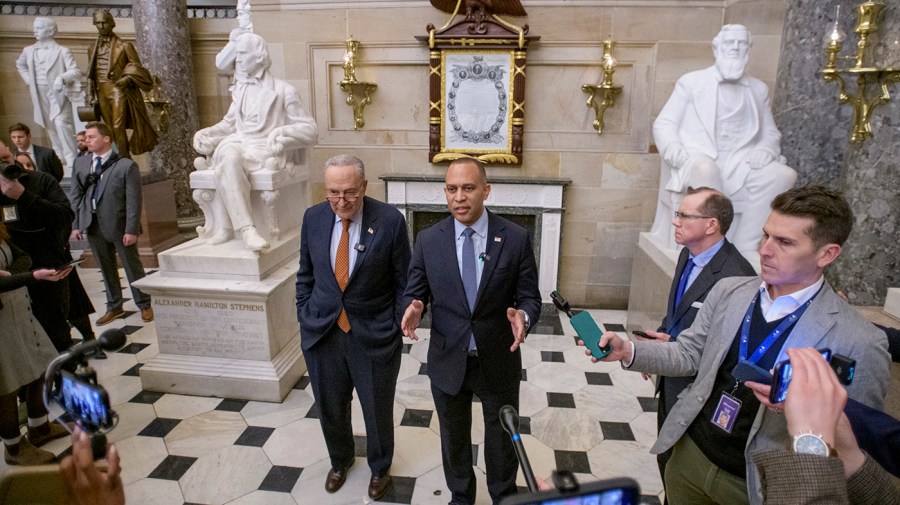Democrats Nervously Wait on Trump Response to Court Rulings
Recent court rulings have dealt setbacks to President Donald Trump’s agenda, leaving Democrats anxiously awaiting his response. Federal judges have issued temporary restraining orders and injunctions against several of Trump’s executive actions, including attempts to shut down agencies, transfer transgender prisoners, and offer federal employee buyouts.
Key Developments:
At least 40 lawsuits are challenging aspects of Trump administration policies. Courts have halted plans to shut down congressionally authorized agencies. Judges blocked transfers of transgender women to male-only prisons. Attempts to offer unfunded buyouts to federal employees were stopped. An emergency order restricted Elon Musk’s team from accessing Treasury Department systems.
Democratic Response:
Democrats view the courts as a crucial check on Trump’s power, with Senator Brian Schatz stating: “There’s very little we can do but to scream about it and cause delays at the margins.” Representative Jamie Raskin, a key Democratic strategist, expressed optimism: “We’ve won 14 temporary restraining orders or preliminary injunctions. We are winning in court and the rule of law is going to stand.”
However, some Democrats worry about the lack of a cohesive strategy to counter Trump’s agenda beyond legal challenges.
Republican Perspective:
Trump supporters argue that the president is fulfilling campaign promises, particularly regarding reducing the size of the federal workforce. They contend that Trump’s actions aim to address issues like inflation and border security, which resonated with voters.
Potential Impacts:
1. Government Operations: The legal battles could slow or halt significant changes to federal agencies and policies.
2. Constitutional Questions: The standoff raises concerns about executive power limits and the system of checks and balances.
3. Political Climate: Continued legal conflicts may further polarize an already divided electorate.
Background:
This situation echoes Trump’s first term, when courts frequently blocked his executive orders. The current legal challenges test the limits of executive authority and the judiciary’s role in restraining presidential power.
Looking Ahead:
As cases progress through the courts, Democrats are focusing on:
1. Short-term: Blocking “authoritarian, fascistic” moves through legal channels.
2. Mid-term: Winning back the House in 2026.
3. Long-term: Building international democratic solidarity.
The ultimate resolution of these legal battles could significantly shape the balance of power in Washington and set precedents for future administrations.









